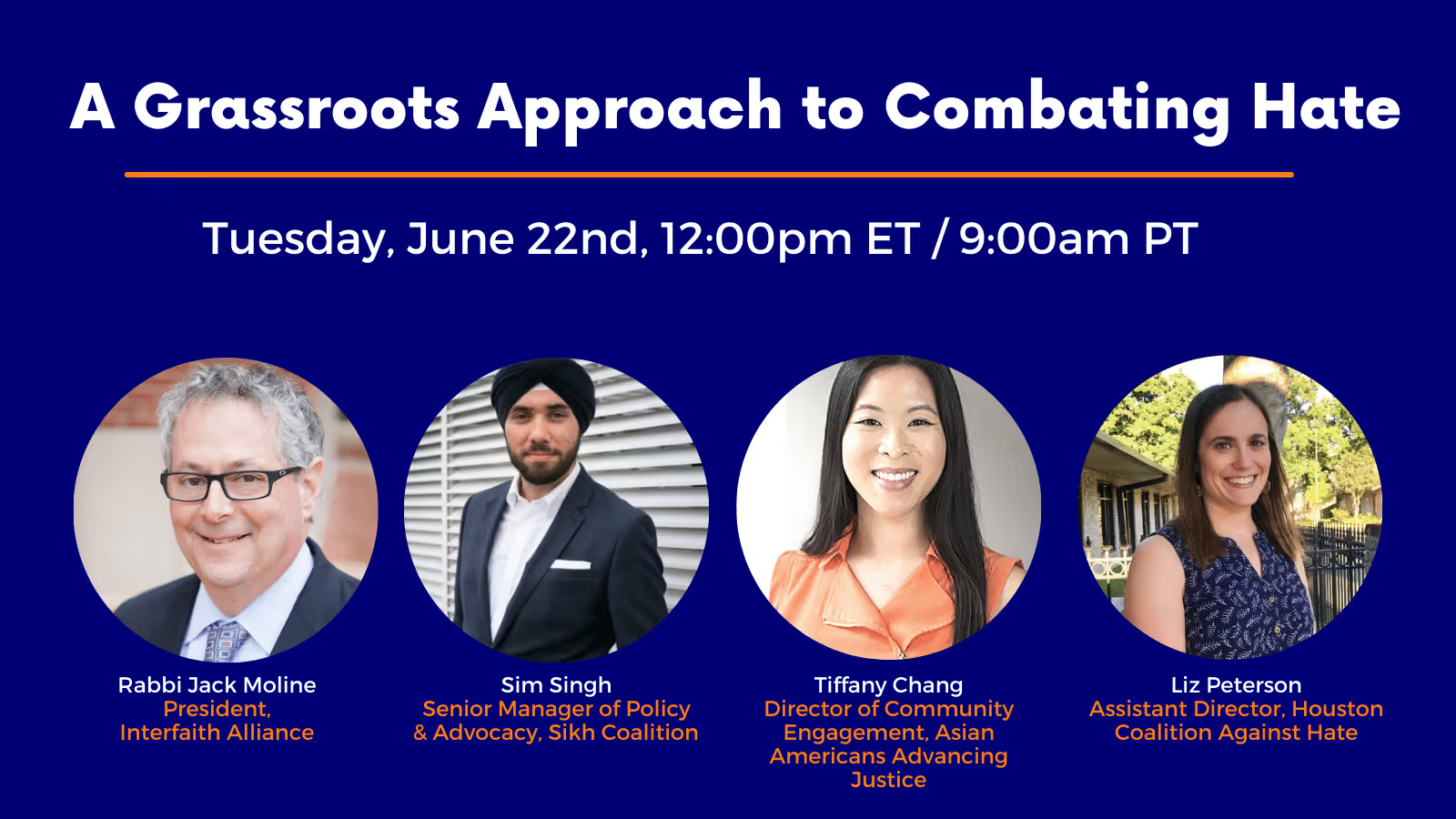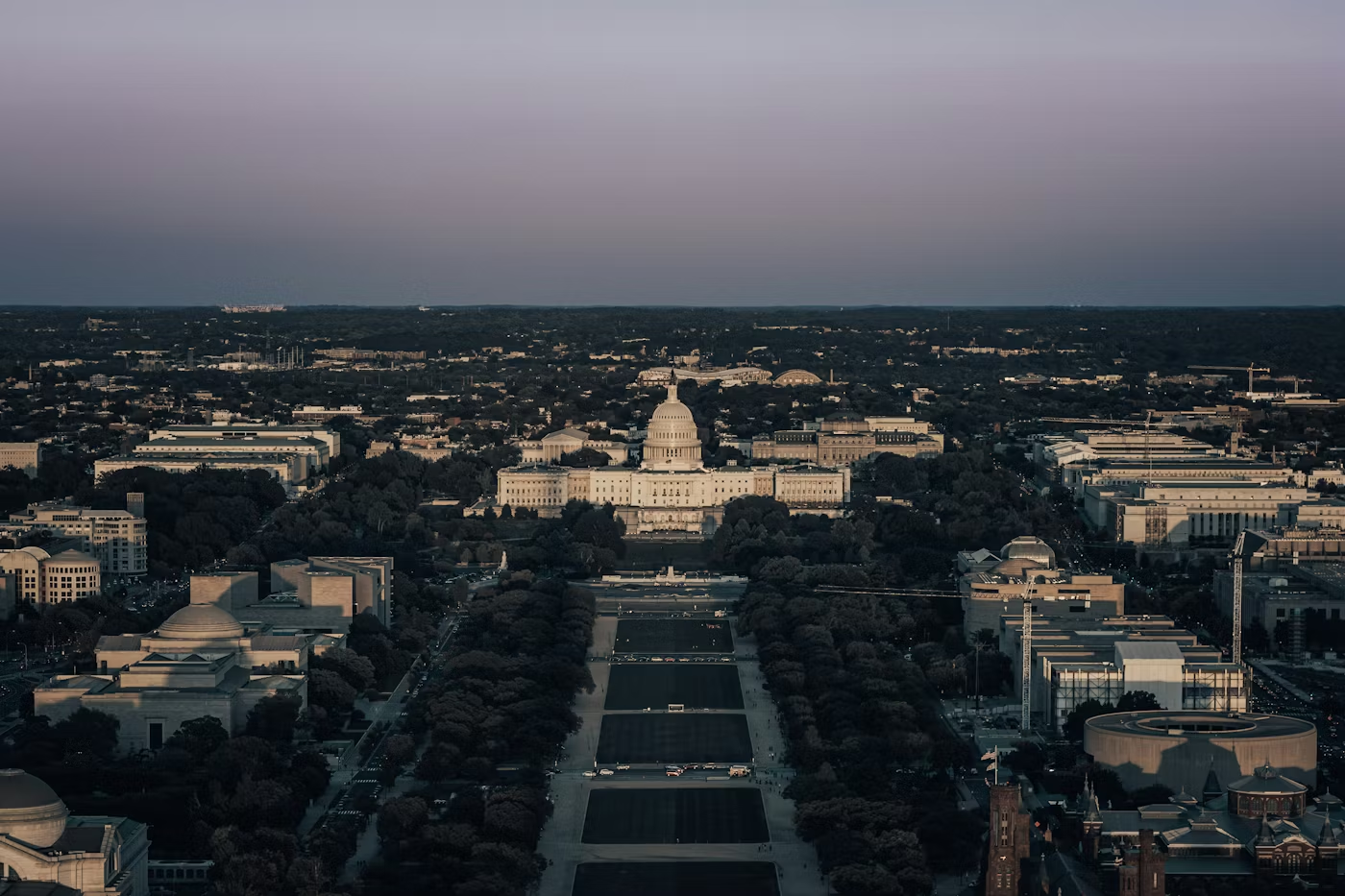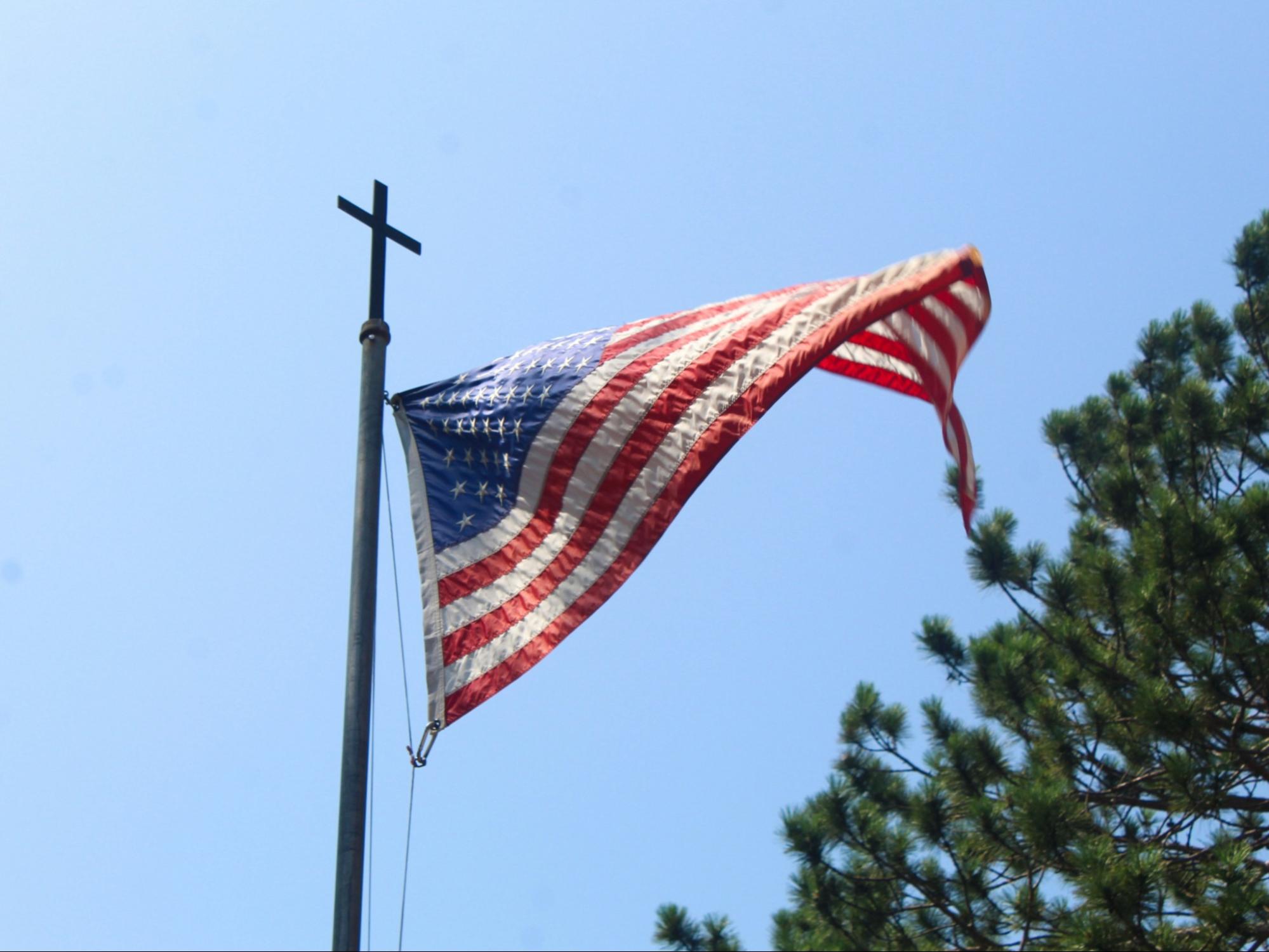
Advocacy
"A Grassroots Approach to Combating Hate," A Panel Discussion
We all deserve to feel safe in our communities – no matter who we are, where we live, or what we believe. But with frightening regularity, the lives of our friends and neighbors are forever changed by hate-based violence.
On April 22nd, the U.S. Senate passed the Jabara-Heyer NO HATE Act as an amendment to the COVID-19 Hate Crimes Act. If passed by the House, this legislation will provide much-needed support to victims of hate crimes, their communities, and authorities. While legislation like the NO HATE Act and the COVID-19 Hate Crimes Act is essential in the fight against hate-based violence, grassroots efforts to combat hate and bigotry are equally necessary to protect targeted groups.
Sim Singh, senior manager of policy and advocacy at the Sikh Coalition, Tiffany Chang, director of community engagement at Asian Americans Advancing Justice, and Liz Peterson, assistant director of Houston Coalition Against Hate, joined Interfaith Alliance president and moderator Rabbi Jack Moline to discuss how allied individuals and organizations can fight hate on a local level.
This conversation took place on Tuesday, June 22, via Zoom and can also be found on our Facebook page.
Transcript

Interfaith Alliance Calls on DOJ to Prosecute ICE Cruelty
Interfaith Alliance joined over forty civil-rights groups in urging the DOJ’s Civil Rights Division to independently investigate recent federal shootings of civilians by immigration agents, and shortly after DOJ announced a civil-rights probe into the Minneapolis killing of Alex Pretti by federal officers

The Trump Administration’s Latest Attacks on Immigrants Threaten Religious Freedom
A Texas Episcopal priest’s detention by ICE is a concerning development in the midst of the Trump administration's attack on religious freedom. It shows how unchecked enforcement threatens our faith communities and furthers an already eroding public trust.

